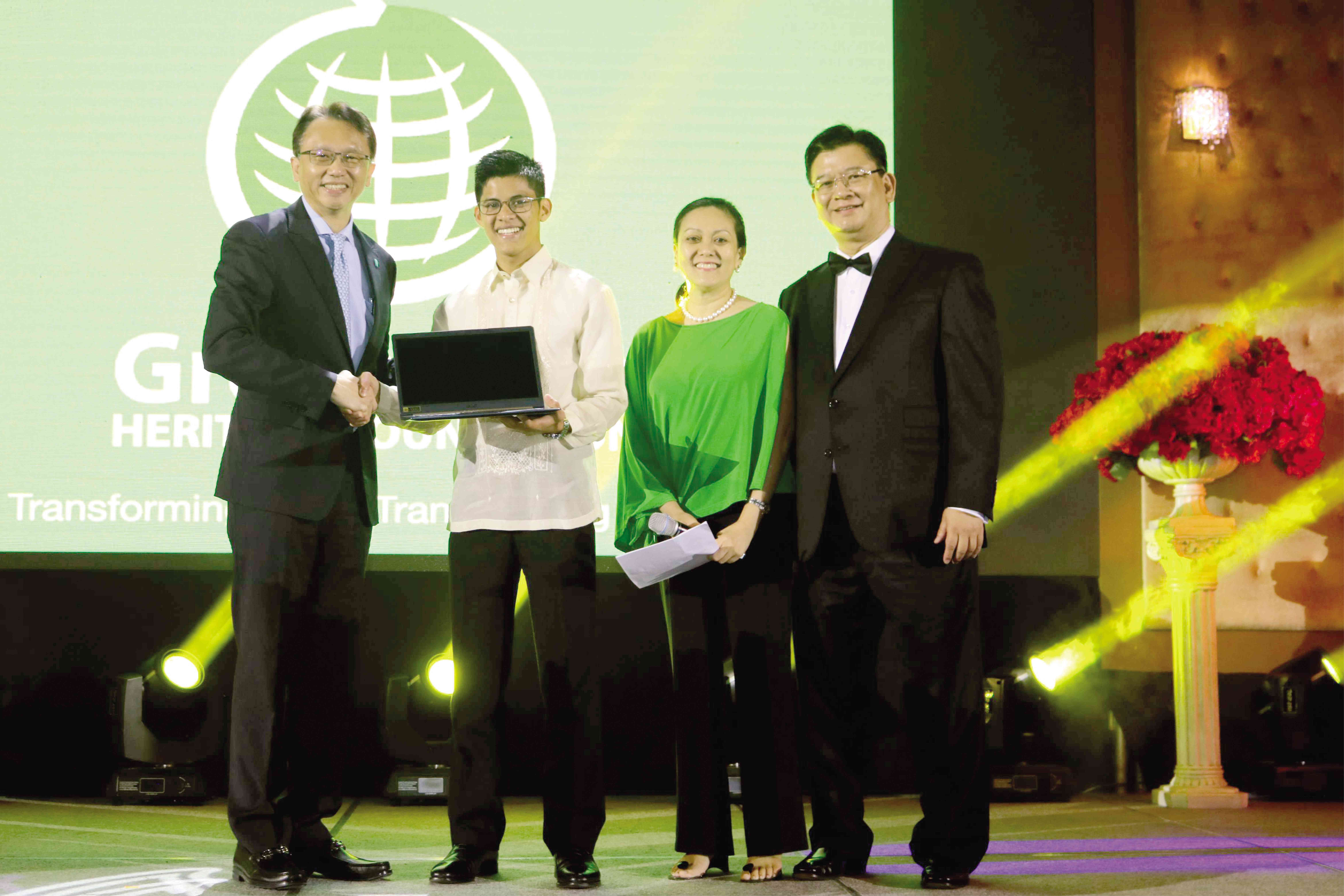Acer gives PH education a boost

Romnick Blanco is awarded an Acer laptop to help him pursue excellence in his studies abroad. He is flanked by (from right) Manuel Wong, Acer Philippines managing director; Dra. Mylene Matti, Green Earth Foundation executive director; Jason Chen, Acer Inc., CEO
For Manuel Wong, managing director of Acer Philippines, Inc., a computer is not just a tool to make routine tasks easier.
It can also help boost the level of education in the Philippines.
Thus, under his leadership, Acer has been pursuing programs to enable teachers to work more effectively and efficiently and prepare students for the future environment.
Acer works directly with both teachers and students, as well as school administrators and even parents to optimize the benefits of computer use in education.
On the ground and in cyberspace, Acer Philippines under Wong is working with educational groups to promote the use of computers.
Article continues after this advertisementThe company also supports initiatives to bring the wonders of computers to many unserved areas, supporting projects by groups to bring the benefits of 21st century technology to communities that have limited access to the modern convenience.
Article continues after this advertisementWong says Acer has gone beyond the production of hardware to the development of digital solutions to specific problems.
In its headquarters in Taiwan, for example, Acer has come up with devices to make medical consultations faster and easier through the Internet, reducing the commute that could add to a patient’s stress.
Tablets that are “friendlier” to elderly users are also bridging distances between the young and their grandparents and other older relatives.
“We are introducing new solutions to make information technology (IT) work easier and faster,” Wong says.
Acer, he says, supports efforts by many schools to train their faculty members to make the best use of computers as teaching tools.
Many such programs, designed to bridge the gap between students, who are usually technology savvy, and their mentors, who often are lagging behind in computing skills, also involve school administrators, parents and other stakeholders who need to level up their knowledge to match that of young people.
Wong says Acer makes software “to make it easier for teachers to manage classrooms.”
It allows teachers to communicate with their students individually.
But software has to be user-friendly, he says.
As for students, since many of them have already mastered the technology, Wong says emphasis should be on preparing them for the future environment.
Even gaming, he says, can be programmed to be more informative and educational.
Acer also runs an online program to augment the students’ knowledge about and skills in computing.
The five-year-old Acer Academy, which now has more than a hundred members, features different student activities and talks by people from the industry who often discuss IT in education.
“We also ask teachers to share their experiences [in the use of computers] for education,” Wong says.
Acer, through Wong, also supports organizations like the Fil-Chi Love and Touch Foundation and The GreenEarth that work with people in rural areas and try to introduce them to computing.
Rather than initiate grassroots initiatives themselves, Wong says they look for partners who are already on the ground and have proven the sustainability of their endeavors.
Wong believes introducing more people to computers will promote development. “Information technology,” the Acer executive says, “is about solutions.”
It involves innovations to meet particular needs, applications for specific requirements.
Software can be developed, for instance, to help farmers manage better their production —from planting, fertilizer application, irrigation to marketing.
Wong does not anticipate the demise of the computer despite the growing popularity of smartphones.
After all, he points out, smartphones are still supported by computers.
But he expects desktops to give way to laptops that will be thinner, lighter, more powerful but also more affordable, allowing more people to enjoy the benefits of the device. —CONTRIBUTED